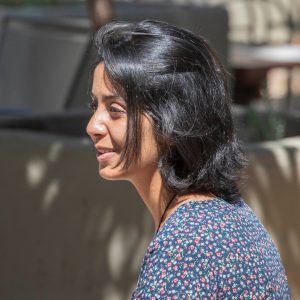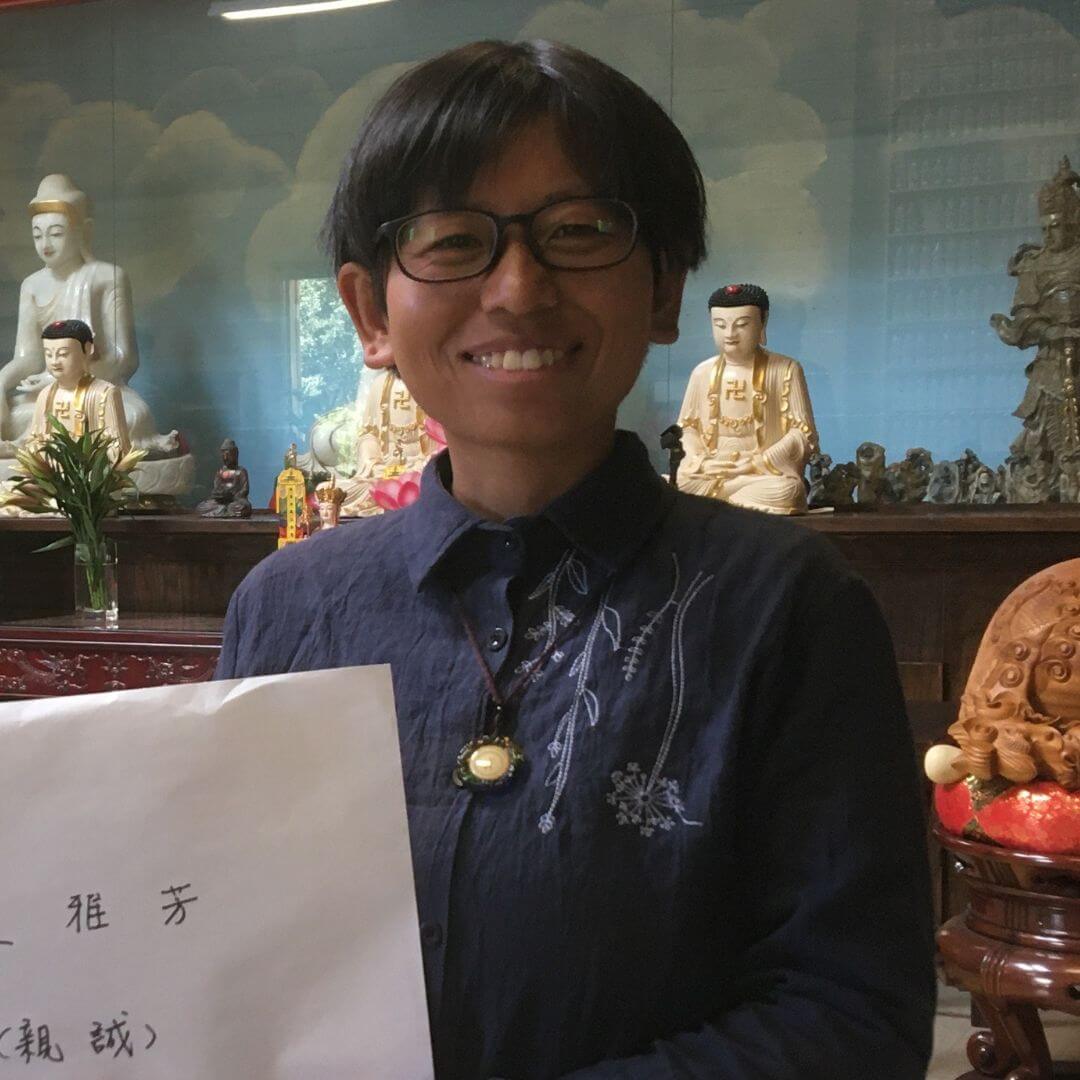
Hometown:
Ilam, Nepal
What were you doing before DRBU?
I was teaching mathematics in a middle school in San Antonio for a year. Before that, I was studying the Great Books curriculum at St. John’s College, Annapolis.
Concept that blew my mind:
The concept that “all concepts are imagined and ultimately false.”
Can you tell us the title of a recent paper?
“A Psychological Interpretation of the Text of Preface to Avatamsaka”
What is it about?
It’s an attempt to derive not just logical but also psychological meaning from the text.
What is it really about?
Not being limited just within the logical. It’s inspired in some ways by Mary Oliver’s poem “The World I Live In.” It is from her book “Devotions,” where she writes: “I have refused to live locked in the orderly house of reasons and proofs. The world I live in and believe in is wider than that. And anyway, what’s wrong with Maybe?” So, this was really about suspending fixed views and searching for wholesome ways to approach and engage with Buddhist texts.
How has DRBU changed you?
I laugh more often. And sometimes, I am surprised by the sound of my own laughter. I definitely can say that I feel happier and clearer in my mind and spirit. But there still is a long way to go!
Are there any surprising things you learned or challenges you faced?
I learned, to my surprise, that a lot of what I was doing in the name of “cultivation” wasn’t skillful. I used to sit for hours in meditation and follow a method while my mind continued to invent stories. My meditation was another imagination trip. I learned that meditation involves essentially beholding the mind-ground.
What does contemplative practice mean to you?
It means creating a space where I can drop all the identities and relax from the core of my being. It means to shine the light of awareness to parts of me that are fragmented and need healing. It also means to live an examined life, as Socrates would say.
Do you have a daily practice?
I’ve learned to appreciate daily rituals. So, I do have daily rituals in the morning and evening that ground me throughout the day. I call it “MBA”—Mind, Body, Attention. It involves doing activities that nourish various aspects of being. Some of them are about writing Morning Pages (inspired by Artist’s Way), Yoga, Vipassana and Samatha meditation, and so on! I’m also learning to be flexible with my self-care tools.
What’s it like to be a part of the DRBU community?
To be around people who’re truly cultivating virtue every day through their intentions and actions is a gift. There’s a basic trust here. And people here inspire me with their consistency, confidence, and honesty. I’ve also heard from a lot of people who come to DRBU that this place helped restore their faith in humanity. I think there’s truth in that.
What do you do outside of class?
I am really enjoying pottery this year! I’m also learning photography and knitting! And I take part in almost all tea-events on campus. Besides all that, I often have long conversations with my friends and teachers here. The discussion from class often spills into lunchtime conversation!
Can you share a memory of a quintessential DRBU moment with us?
When Dr. Rounds, the Current President of DRBU, casually and so kindly offered me her sweater to protect from the cold. It was really touching and meaningful in many ways. There are many such moments that hold so much warmth for me.
How has financial aid played a role in your being at DRBU?
Without generous aid from DRBU, I wouldn’t be here (or maybe I’d be here only after I retired). I’ve felt supported, heard, and genuinely cared throughout the process. I mean, the fact speaks for itself—no one has ever graduated from DRBU with college debt.
What’s your service scholarship (work study) job?
I have a variety of work! Thankfully I enjoy them all. I teach a few classes at the girls’ school every week. I help out with Outreach events and have conversations with students and faculties for the College Podcast (https://podcast.drbu.edu). Lastly, the most fun one, I help organize various student activities!
What are you interested in doing after DRBU?
My practice is the center for all things. I have interest in research as well as working with people in some form. However, I’d wanna do whatever makes it easier for me to continue my practice.
How does what you’re learning here carry out into the world?
To learn to live in harmony with each other, to help alleviate suffering of others in one form or another, to learn to listen deeply and respect all beings in all forms, and to practice self- inquiry every day—these are some things that the world desperately needs right now. And these aren’t some theories in the air, but things that people practice day to day in DRBU.
What would you say to someone who is thinking about applying to DRBU?
If you’re already thinking about it, I guess you already have some affinity with the way of life that is centered in wisdom-cultivation. So, I wish you courage, clarity, and curiosity!


